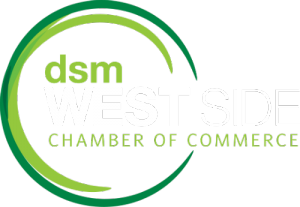A Guide to Basic Business Terms for New and Aspiring Entrepreneurs
Starting your first business is exciting—but it can also be overwhelming, especially when every conversation seems filled with jargon. Understanding essential business terms early on helps you communicate clearly, make better decisions, and build confidence as you move from idea to action.
This guide explains key terms in plain language, includes a quick-reference table, and answers common beginner questions. We’ve also linked to resources across the small business ecosystem to support deeper exploration.
📘 Why Knowing These Terms Matters
When you're launching a business, every decision—from choosing a structure to applying for funding—requires working knowledge of business vocabulary. You don’t need an MBA, but a shared language with partners, vendors, and investors saves time and prevents costly misunderstandings.
If you're in a transitional moment—planning a launch, considering a partner, or applying for grants—having the right terminology is more than helpful: it’s empowering.
🔤 Core Business Terms You Should Know
Here’s a high-level overview of foundational terms for any entrepreneur:
|
Term |
Definition |
Why It Matters |
|
Sole Proprietorship |
A business owned and run by one person with no legal separation between owner and business |
Easiest to start, but offers no liability protection |
|
LLC (Limited Liability Company) |
A legal entity that protects personal assets while offering flexible taxation |
Popular among small businesses for balancing protection & simplicity |
|
Business Plan |
A formal document outlining your business model, goals, and financial projections |
Needed for funding, strategic planning, and partnerships |
|
Cash Flow |
The movement of money in and out of your business |
Critical for daily operations and financial health |
|
Break-Even Point |
The sales amount at which your costs are covered and you begin to make a profit |
Key for pricing, forecasting, and growth decisions |
|
Equity |
Ownership interest in a business |
Common in partnerships, startups, and investor discussions |
|
KPI (Key Performance Indicator) |
A measurable value that shows how effectively you're achieving business objectives |
Helps you track what matters: revenue, customer growth, etc. |
📄 One Term You’ll Encounter Early: The Letter of Intent
In early-stage business conversations—especially around partnerships or purchases—you may come across a letter of intent (LOI).
An LOI is a document that outlines the preliminary understanding between two parties before a formal agreement is made. It’s often used to show serious interest before drawing up definitive or purchase agreements.
LOIs can also signal to investors, partners, or press that a new relationship or transaction is underway—even if it’s not finalized. If you’re considering one, consider this breakdown of how LOIs work, what they include, and how to draft one that protects your interests.
🔍 10 More Useful Terms Every Startup Should Bookmark
-
Bootstrapping – Funding your business with personal savings or revenue instead of outside capital.
-
Burn Rate – How quickly you’re spending cash, often used in startup runway calculations.
-
Runway – How long your business can operate at current spending levels before running out of money.
-
Revenue Model – The strategy you use to make money (subscriptions, one-time sales, etc.).
-
Customer Acquisition Cost (CAC) – What it costs to acquire a single customer.
-
Churn Rate – The rate at which customers stop using your product or service.
-
Gross Margin – Revenue minus the cost of goods sold, usually expressed as a percentage.
-
Net Profit – What’s left after all expenses, taxes, and costs are deducted from revenue.
-
Intellectual Property (IP) – Creations of the mind (logos, software, inventions) you can legally protect.
-
Business Credit Score – A score that reflects your company’s creditworthiness (different from personal credit).
You can learn more about how these terms play out in real-world financing with this small business funding guide.
❓ FAQ: Quick Answers for New Entrepreneurs
Do I need to register my business name?
Yes—if you're operating under anything other than your legal name, most states require a “Doing Business As” (DBA) registration. Learn more here.
What's the difference between revenue and profit?
Revenue is the total money coming in. Profit is what’s left after expenses. It’s possible to have strong revenue but poor profit.
When should I form an LLC instead of a sole proprietorship?
If you want liability protection and potential tax benefits, forming an LLC is a smart early move. You can find a detailed step-by-step comparison in this resource.
What’s a good first KPI to track?
Start with metrics tied to your business model—customer growth, website traffic, or monthly revenue. This beginner KPI guide is a helpful place to start.
🎯 Highlighted Resource: Legal Templates for Small Business
If you're drafting documents like letters of intent, partnership agreements, or NDAs, LegalTemplates offers affordable, easy-to-customize legal forms that can help you save time and avoid missteps. It’s a good early-stage companion before hiring a full legal team.
✅ Keep It Simple, Then Scale
Don’t get intimidated by business jargon. Start with the basics, learn as you go, and bookmark trustworthy resources for when you need to dig deeper.
Use this guide as a reference, revisit it when terms come up in meetings or articles, and remember: you don’t have to know everything to get started—you just need enough clarity to take the next step.
Discover the vibrant community and business opportunities on Des Moines’ West Side by visiting the Des Moines West Side Chamber of Commerce today!
This Hot Deal is promoted by Des Moines West Side Chamber.

